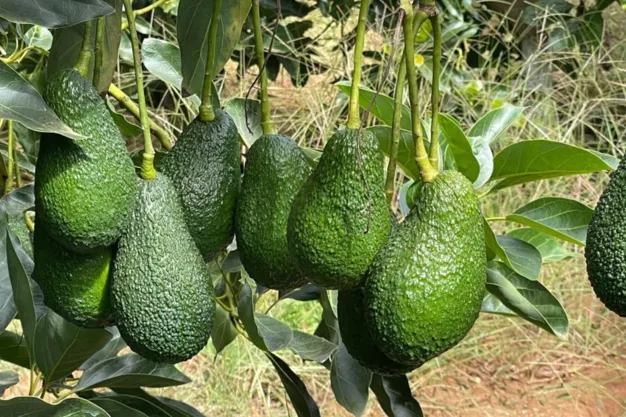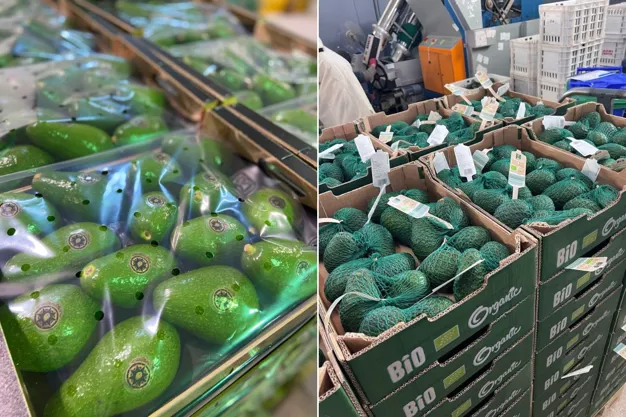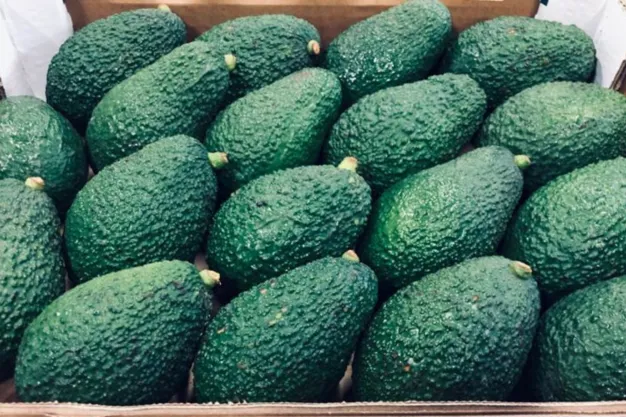The Moroccan avocado campaign is progressing calmly, a little more slowly than expected, but it is on track to achieve good results and even break the record for export volumes. So says Abdellah Elyamlahi, President of the Moroccan Avocado Association.
"As of January 7, Morocco has exported 30 thousand tons of avocados for the 2023-2024 season. We reached a peak in production and demand during the second week of January, and we estimate that today, two months from the end of the campaign, exports have reached 42-45 thousand tons, or 70% of the 60 thousand tons target we set ourselves. This target represents a new all-time record for export volumes and symbolizes the performance of the avocado sector in Morocco and the presence of Moroccan origin, hence our efforts to achieve it this season", says Elyamlahi.

Exporting 60,000 tonnes of avocados this season is no mean feat. Unfavorable factors, both natural and commercial, followed one another right from the start of the season. In October, storm Bernard hit the country's Atlantic coast and was most violent in Larache, the heart of Moroccan avocado production. Elyamlahi says, "We lost 6,000 tons of fruit to the storm, but that's not all," explains Elyamlahi. This season, there has also been a problem with inadequate sizes, from 12 to 22, which are not coveted on the market. The total quantity of gaps and fruit lost in the storm is quite significant and has slowed down our export performance."
In October, too, it wasn't easy for growers to settle on a price, so the campaign began in the now classic way that many industry insiders have been decrying: speculation, late harvests, and a wait-and-see attitude. Elyamlahi comments: "It happened again, and confusion marked the launch of the season. Taking advantage of a shortage of fruit on the European market, many growers demanded excessive prices and kept asking for more and more, to the point of delaying exports, and then slowing them down. Consumers could no longer keep up with prices, which ultimately led to a drop in demand and a fall in prices in November."

It took several months for prices to stabilize, adds the exporter: "Competition was tough from November to December, when Latin American origins, particularly Chile and Colombia, pulled prices down; prices only recovered in January, when Chilean volumes were exhausted, and it was then that we could reach a peak in European demand for Moroccan avocados. At present, prices are stable. We are now competing with Spain and Israel on the European market, but these origins do not pose a problem as prices are more or less at the same level. However, we are finding that demand is currently lower than at the same time last season, due to an exceptional lack of interest in avocados on the part of end consumers."
The main destinations for Moroccan avocados this season remain, to no one's surprise, the Netherlands and Spain, followed by Germany and France. This is a market configuration that has remained unchanged for years, according to Elyamlahi. Nor has there been any change in the most popular fruit for export, which remains the Hass variety in sizes 20 to 22. On the local Moroccan market, production gap volumes are sufficient to cover market needs, adds the exporter.

When asked whether he anticipates any restrictions on avocado production, given that Morocco is experiencing a year of severe drought, Elyamlahi remains serene. "The government has already taken and implemented the decision to halt subsidies for irrigation facilities for avocado trees, among other crops. But I don't think the restrictions will go beyond this measure. The drought is indeed hitting the south of the country hard, but in the north, where most of the production is located, we enjoy good rainfall and huge underground water reserves."
For more information:
Abdellah Elyamlahi
Moroccan Avocado Association (MAVA)
Tel: +212678732391
Email: [email protected]










